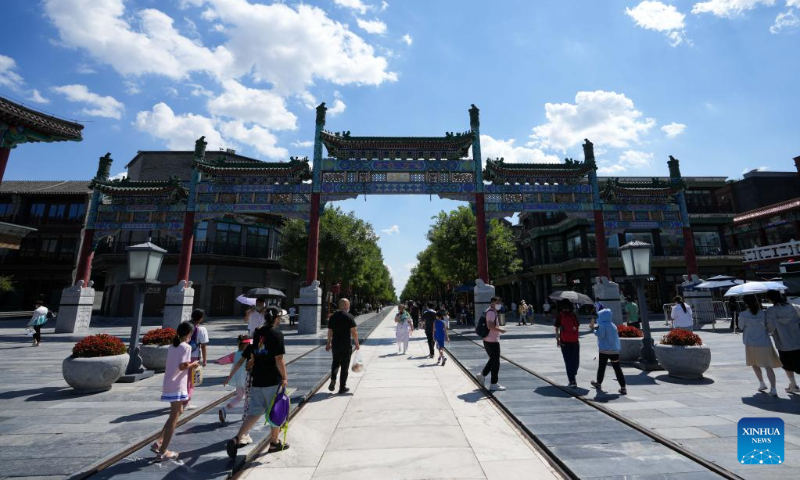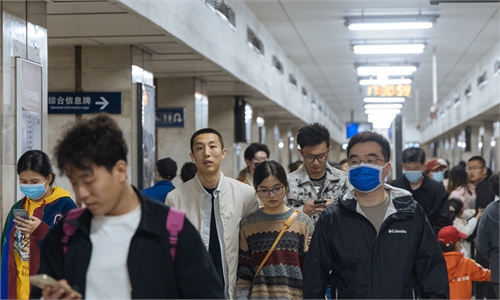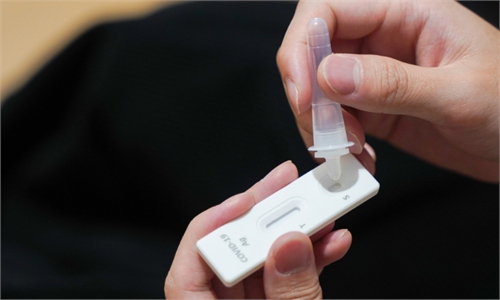COVID-19 tops most reported infectious disease in Beijing for five consecutive weeks

People visit the Qianmen street in Beijing, capital of China, Aug 16, 2022. Photo: Xinhua
COVID-19 has continued to be the most reported infectious disease in Beijing for five consecutive weeks, media reported Friday citing latest weekly report of Beijing municipal health authority, as sporadic reports of COVID-19 reinfections have kept increasing in some Chinese cities recently, causing public concern over whether there will be a new wave of the virus.
According to the latest data, Beijing health authority received 30,750 reports of 16 notifiable infectious diseases in the 21st week of this year (May 22-28). The five most reported diseases were COVID-19, other infectious diarrheal diseases, influenza, tuberculosis and syphilis, accounting for about 99 percent of the total reports.
Respiratory infectious diseases are the most reported diseases this week, accounting for more than 97 percent of the total reports, media said.
From the 17th to the 21st week of this year, the reports of infectious diseases gradually climbed in Beijing. The data in the previous four weeks are 6,438, 10,508, 18,081 and 25,544, according to media reports.
Amid growing reports of COVID-19 infections in recent period with a certain part of them being reinfection cases, the State Council's Joint Prevention and Control Mechanism organized experts to respond to public concerns.
The proportion of pneumonia and severe cases in the COVID-19 reinfection patients is very low, and reinfected people are mainly young people with relatively mild symptoms that mainly manifest in the upper respiratory tract, media reported Thursday citing Tong Zhaohui, an expert in critical respiratory diseases under the National Health Commission.
The symptoms of reinfection patients are generally milder than those of the first infection, according to Tong. The symptoms of people infected for the first time in recent period are similar to those that were infected last winter, and are relatively severe, such as body temperature exceeding 38.5 C and severe respiratory symptoms, while the body temperature of reinfection cases generally does not exceed 38 C, he said.
"This is because people who were infected last winter still have certain antibodies, and the memory of cellular immunity exists, which has a protective effect on the human body [when they get reinfected this time]," Tong explained.
The elderly, those with underlying diseases and the unvaccinated are still high-risk groups, Wang Guiqiang, director of the infectious diseases department at Peking University First Hospital, told media. He encouraged people from these groups to get vaccinated or receive booster shots to reduce risk of severe diseases.
Wang also said medical service institutes in communities should conduct thorough investigation in local high-risk groups and timely provide antigen and nucleic acid tests.
Other people can take anti-virus drugs if they have fever after infection, Wang said, noting currently six kinds of anti-virus drugs are available in China.
As to public concerns over the sequelae of COVID-19, Tong said that some people may experience symptoms such as fatigue, insomnia, and anxiety for a period of time after recovering from COVID-19 infection. These are only post-coronavirus symptoms, not sequelae. They can recover after a longer time and will not affect work and life.
Global Times


